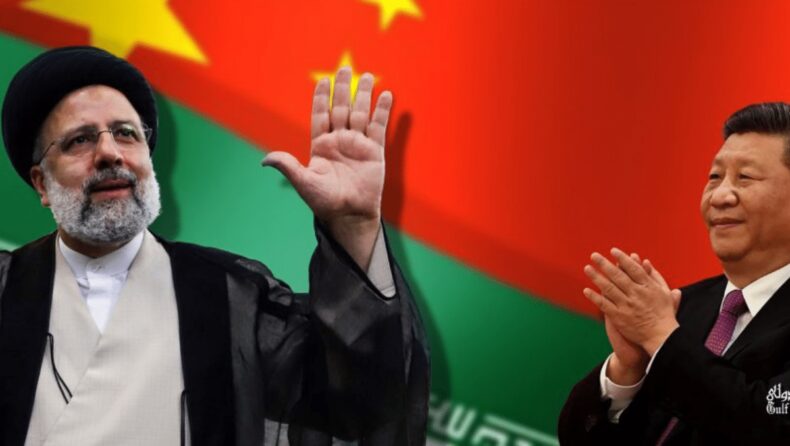Iranian President Ebrahim Raisi is due at Beijing next week for a state visit, at the request of the Chinese President Xi Jinping. Raisi’s first visit to China is expected to facilitate greater relations between the two countries – connected by the Belt & Road Initiative and united in their rivalry against the USA.

Table of Contents
The visit is scheduled from Tuesday to Thursday, Beijing officials confirmed on Sunday. According to Iranian press, Raisi will be leading a large delegation of senior officials on this visit, including the central bank chief ; six members of the incumbent cabinet including the ministers of crucial portfolios ranging from economy, petroleum, trade to foreign affairs ; and the top nuclear negotiator.
Not only is it Raisi’s first state visit to the mainland of the Asian economic giant – it also happens to be the first by an Iranian president in 20 years, according to Iranian state media.
The Iranian President will meet his Chinese counterpart, and their delegations will sign cooperation documents, according to Iranian state media and Chinese state-run Global Times. The itinerary also includes meeting with Iranian & Chinese businesses leaders and Iranian expatriates in China.
Previous High-Level Meetings

This visit is set to follow up on strides made at the last high-level state interaction between the two countries, which took place at the Shanghai Cooperation Organisation (SCO) summit in Samarkand, Uzbekistan last September.
China had supported Iran’s now-successful bid to become a full member of the organisation.
Zhu Yongbiao, executive director of the Research Center for the Belt and Road Initiative, underscored China’s support for Iran, and reiterated the importance of the bilateral relationship at Samarkand in the following words during a press meet,
“Cooperation under the framework of the Belt & Road Initiative and the Shanghai Cooperation Organization will give China & Iran more space for cooperation…It is foreseeable that after this meeting, China-Iran relations will enter a new higher stage.”
Iran backed up China’s support in December, where it pledged its continued commitment towards deepening strategic partnership during a meeting with Chinese Vice Premier Hu Chunchua in Taiwan.
Growing Bilateral Relations Among International Tensions

China is Iran’s largest trade partner, with customs data indicating the trade counter for the ongoing Iranian calendar year to be at $12.6 Billion of exports to China, and $12.7 Billion of imports from it.
China also heavily invests into the Iranian economy, with current Chinese investments currently at $162 Million during the first year of Raisi’s presidency.
In 2021, Iran and China signed a 25-year strategic cooperation agreement that covered economic activities from oil to mining to industry, transportation and agriculture, according to a Fox News report.
Both countries have had tense relations with the United States, and have aimed at presenting themselves as an equal to the American power, alongside Russia.
China continues to buy oil from Iran, despite the US sanctions. High Chinese demand have ensured record highs for Iranian oil exports in the last quarter of 2022.

China & Russia also signalled their support for Iran’s bid to join the strategic BRICS grouping, as expansion plans go under discussions.
The Iranian nuclear issue is also a big highlight in the growing concerns over rising Beijing-Tehran relations, and is also a reason international experts are keeping an eye on the upcoming visit.
China is a signatory of the Iran nuclear deal, alongside world powers – which was abandoned by the US in 2018 – running it into a deadlock. Iran has been trying to restore the accord, and has been appealing to other key signatories of the deal.
Ali Bagheri, the country’s top nuclear negotiator is also accompanying the President on this visit. This might signal that the talks on the Iran nuclear deal, or the JCPOA might be a significant part of the visit.
The visit might also sort out some current issues between China & Iran, especially after a diplomatic row over President Xi’s controversial joint statement with the leaders of the Gulf Cooperation Council (GCC) countries, majority of which are Iran’s Arab rivals. The statement called to question Iran’s ownership over a few islands in the Strait of Hormuz, alongside the larger issue of Iran’s regional presence and nuclear uncertainty.
Also Read : The U.S. And Iran Argue At The UNSC About The Use of Iranian Drones in Ukraine












